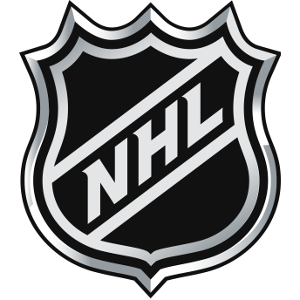Written By: Kayla Sherrell
The National Hockey League, the second major professional sports league established in the United States, attracts millions of fans to the sport of ice hockey every year. The 24 U.S.-based NHL teams play dozens of games every year, creating valuable markets for entertainment, advertisement, and merchandising. And now, it appears that the NHL is looking to add gaming as another – and highly lucrative – revenue stream.
National Hockey League Partners with MGM Resorts
 In a historic move, the NHL announced a multiyear agreement MGM Resorts International earlier this week. Many experts are seeing this move as a response to this year’s Supreme Court ruling opening up sports wagering to state regulation and control. Following the ruling, 18 states have legalized sports betting, opening up new opportunities for partnerships between professional sports organizations and private gambling establishments. Big hitters in the casino business and prominent sports associations alike are moving quickly to take advantage of growing prospects in the world of sports betting.
In a historic move, the NHL announced a multiyear agreement MGM Resorts International earlier this week. Many experts are seeing this move as a response to this year’s Supreme Court ruling opening up sports wagering to state regulation and control. Following the ruling, 18 states have legalized sports betting, opening up new opportunities for partnerships between professional sports organizations and private gambling establishments. Big hitters in the casino business and prominent sports associations alike are moving quickly to take advantage of growing prospects in the world of sports betting.
A Deal for Data
Professional sporting associations have the potential to bring a great deal of value to the gaming industry because they have insider access to information that is highly relevant to setting odds. As part of the recent deal, the NHL has agreed to provide MGM with previously unavailable NHL-branded game data. This data may eventually include puck and player tracking information.
The data that the NHL is passing on to MGM will be produced by the league’s tracking system, which is currently still under development, although early features like player tracking is expected to be executed next season. Future data tracking features are predicted to measure everything from a player’s shot velocity to real-time wagering. Notably, however this valuable data will not include player injuries. Rather, the NHL will leave injury reporting to the team’s discretion. NHL’s commissioner, Gary Bettman justified the NHL’s decision by explaining that the sports association does not want its players to be targeted when playing with a known injury.
The NHL-MGM deal includes promotions during marque events held by the league, including the Stanley Cup, All-Star Game, and the Winter Classic. But MGM largely expects to facilitate an expansion of its sports betting operations by relying on the data they receive from NHL and other sports associations they’re working with. As they collect this data, the casino will be able to provide customized gaming features and innovative betting opportunities for customers in the growing U.S. sports betting market.
Key Terms Preserve NHL’s Independence
Specific terms have not yet been disclosed, but the deal the NHL struck with MGM is a fixed revenue arrangement. This means that the NHL will not be receiving any kind of cut from the gaming profit brought in by the casino, which preserves important ethical principles in sports wagering.
Notably, the NHL’s agreement with MGM is non-exclusive. Other casinos will also have the opportunity to purchase NHL’s data for their own sports betting operations, which provides the NHL with a great deal of flexibility for the future.
Sports betting is changing in response to the new law, and with change comes re-imagination and innovation. The recent NHL-MGM deal demonstrates the type of creative responses that sports organizations and casinos are coming up with following the recent Supreme Court decision, and it remains to be seen what enterprising business people in the gaming industry will come up with next.